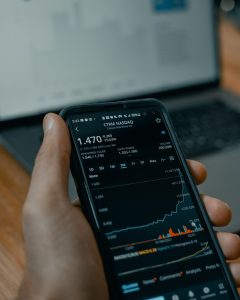Forex trading and stock trading are two of the most popular forms of investing. While they share some similarities, they are fundamentally different. In this article, we will explore the differences between forex trading and stock trading.
What is Forex Trading?
Forex trading involves trading currencies. It is the largest financial market in the world, with a daily turnover of around $5 trillion. Forex trading takes place over-the-counter (OTC), which means that there is no centralized exchange. Instead, forex trading is conducted electronically through a network of banks, brokers, and other financial institutions.
What is Stock Trading?
Stock trading involves buying and selling shares of publicly-traded companies. Stock trading takes place on stock exchanges, such as the New York Stock Exchange (NYSE) and NASDAQ. These exchanges act as a centralized market where buyers and sellers can trade shares of publicly-traded companies.
The Differences Between Forex Trading and Stock Trading
1. Market Size
The forex market is much larger than the stock market. The daily turnover of the forex market is around $5 trillion, while the daily turnover of the stock market is around $200 billion. This means that there is much more liquidity in the forex market, which can make it easier to enter and exit trades.
2. Trading Hours
The forex market is open 24 hours a day, five days a week. This means that traders can trade currencies at any time of the day or night. In contrast, the stock market is only open during regular business hours. This can make it more difficult for traders who have day jobs to trade stocks.
3. Volatility
The forex market is generally more volatile than the stock market. This is because currencies are affected by a wider range of factors, such as political events, economic data, and central bank decisions. In contrast, stocks are generally affected by company-specific news and events.
4. Leverage
Forex trading allows for much higher levels of leverage than stock trading. This means that traders can control larger positions with a smaller amount of capital. While this can increase potential profits, it also increases potential losses.
5. Trading Cost
The cost of trading forex is generally lower than the cost of trading stocks. This is because forex brokers typically charge lower commissions and spreads than stock brokers. However, some forex brokers may charge additional fees, such as overnight financing charges.
6. Fundamental Analysis
In forex trading, fundamental analysis is often used to determine the long-term direction of a currency pair. This involves analyzing economic data, central bank decisions, and other factors that can affect a country’s currency. In stock trading, fundamental analysis is also used, but it focuses on analyzing a company’s financial statements and other company-specific data.
7. Technical Analysis
Both forex and stock traders use technical analysis to identify trading opportunities. However, the tools and indicators used in each market can be different. For example, forex traders may use candlestick charts and Fibonacci retracements, while stock traders may use moving averages and relative strength indicators.
Conclusion
In conclusion, forex trading and stock trading are two fundamentally different forms of investing. While they share some similarities, such as the use of technical analysis, they differ in terms of market size, trading hours, volatility, leverage, trading cost, and fundamental analysis. Traders should understand these differences before deciding which market to trade.






